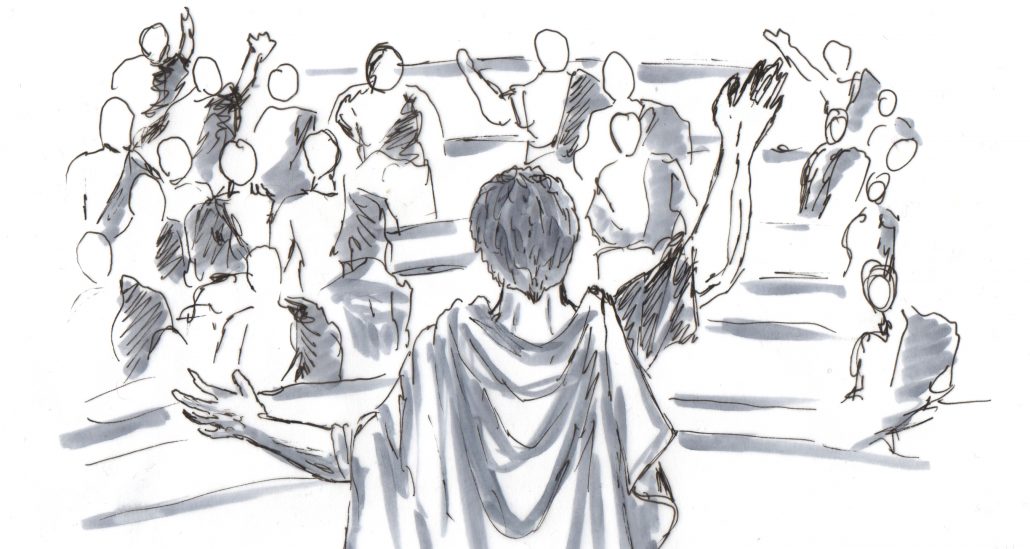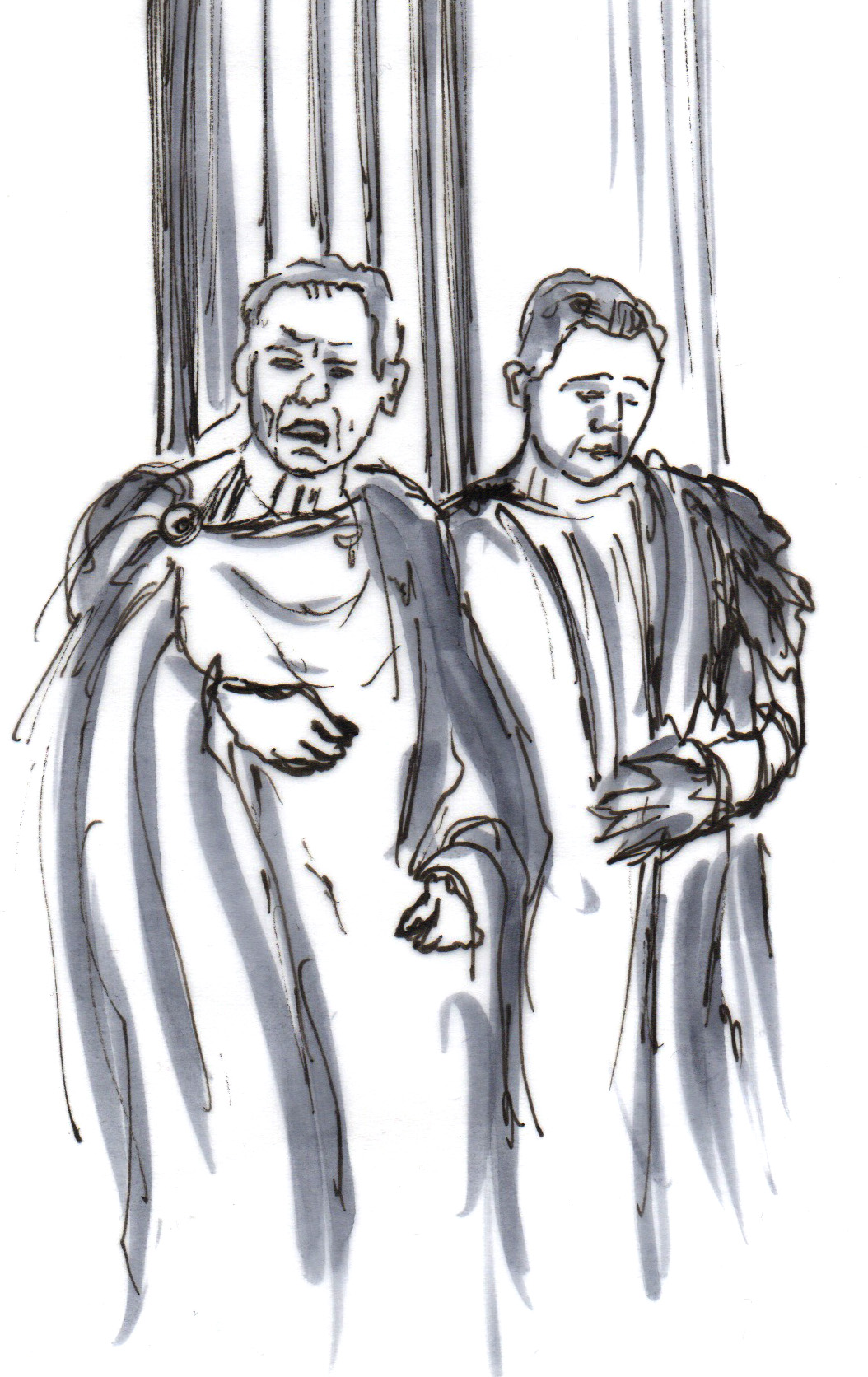The City Council
The ordo decurionum, composed of old provincial nobility, is a vital governing body. Membership is hereditary, yet unpopular, because there is little to gain and much to spend. Strict rules regulate appropriate reasons for absence during scheduled assemblies. The ordo represents the city in formal dealings with proconsul and emperor, appoints the magistrates for the upcoming year and observes their actions.
Many rich members of the council have already left the city with all their money in order to avoid the tax burden. This has thinned out the ranks of the ordo decurionum, as the wealthiest citizens are no longer active members.
The General Assembly
The comitia is the assembly of Scarbantia’s citizens, which includes all male, free inhabitants of the city. In Scarbantia, however, it serves no official purpose, neither electing officials nor enacting laws. Occasionally, the general assembly convenes for public sacrifices or the publication of newly enacted laws. It is obligatory wearing a toga when being part of a comitia.
Law
In its essence, the Roman Empire is a constitutional state with a comprehensive system of laws and provisions. The magistrates are mainly concerned with their duties as judges, since jurisdiction is understood as the main purpose of the depleted administrative body.
There are no state attorneys or prosecutors who would bring a charge to court. Instead, it is each citizen’s own duty and privilege to bring charges to a judge (duumvir or aedile).
At court, one can either speak for himself or let an attorney do the work, who will try to eloquently convince judge and audience within a given period of time. Naturally, public sessions frequently get out of hand when an electrified crowd vocally argues for one side or the other!
Slaves may not call upon a court themselves and only testify under torture. Usually, court sessions are held before noon.
Roman law doesn’t contain prison sentences except for short detention in urgent situations. Instead, monetary fines are the norm. Executions are reserved for serious crimes like murder, high treason or refusal to sacrifice for the emperor’s wellbeing. In these cases, citizens are nobly put to the sword while foreigners and slaves are hung to a cross or slaughtered in the arena.




